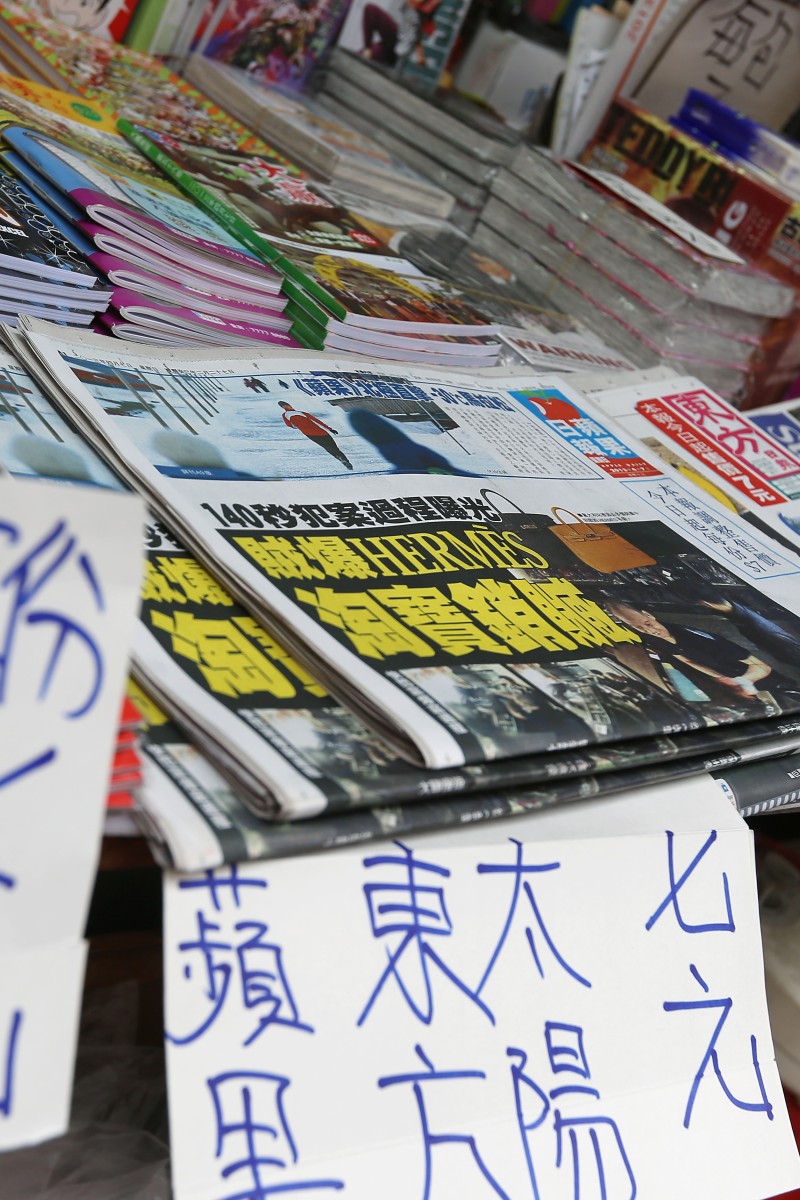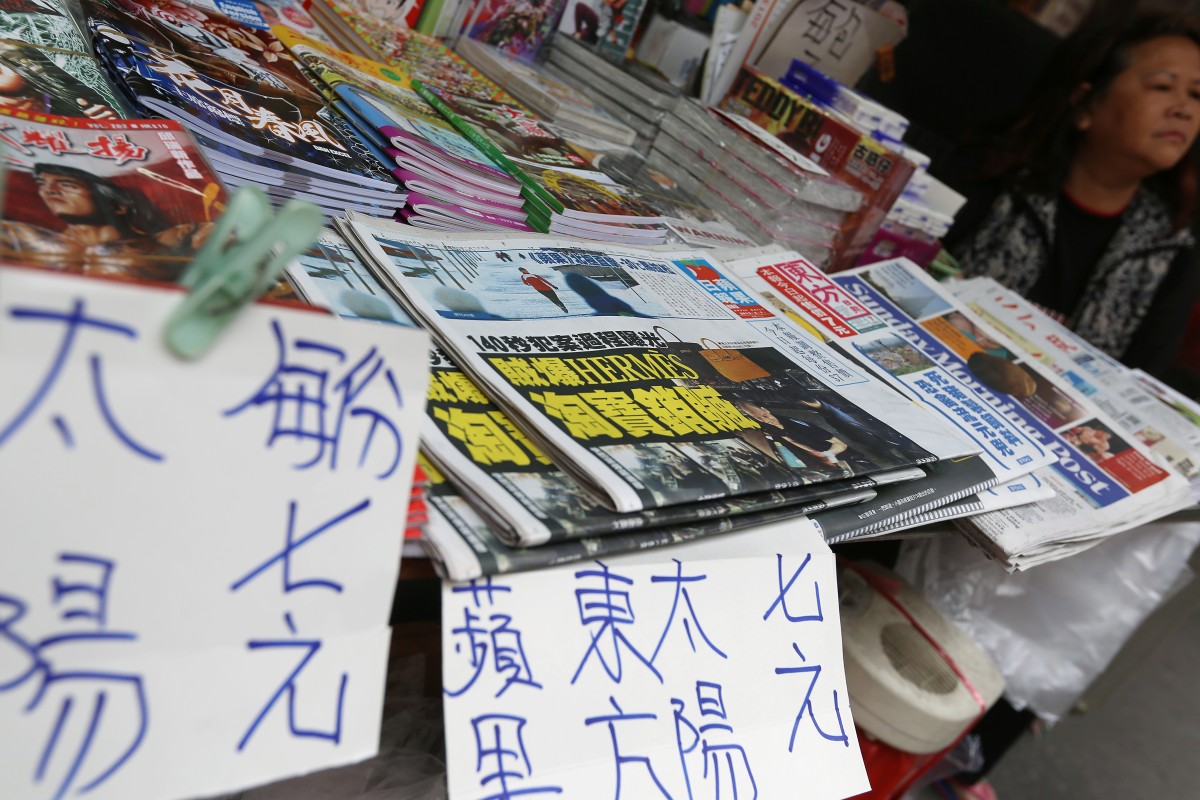
A newspaper's purpose: not there just to make money
Newspapers are just trying to satisfy the lowest common denominator, rather than giving us what's important
 What do newspapers need to write about?
What do newspapers need to write about?A quick scroll through popular news sites always reveals bold titles and mainstream topics that have already been widely covered. It seems as though different newspapers are constantly competing to release new content but failing to get interesting scoops. Republishing content with similar themes may make sense economically, to keep subscribers, but from a reader’s perspective, it’s just wasting their time.
The purpose of newspapers should be to inform people with diverse up-to-date content, which they may have otherwise not been able to discover on their own. At least that is the idealised version of a commercial newspaper. In reality, most newspapers are dominated by seasonal “hot issues” like the United States presidential election or the Occupy Central movement. As a matter of fact, newspapers have evolved to serve the interests of the masses and know exactly how to deliver people the content they would like to see.
What about the important things like countries currently at war, with children who desperately need proper education and healthcare?
By consistently focusing on a narrow range of topics, newspapers prevent readers from discovering new ideas through news, as the majority of the content is just reused. Newspapers in general have strayed from their original purpose of informing the public, to feasting on the readers' emotions. Even subsections of newspapers targeted at younger audiences have failed to engage readers with more diversified content and ideas.
I believe one way to resolve this issue is by reducing content homogeneity. Also, they should not filter the opinions sent through editorial letters so strictly so more people have a chance to express their views on topics in different fields. Lastly, a good newspaper should always have controversial content to provoke critical thinking of the general public, instead of always showing biased articles.
It is obvious that none of the current newspapers in Hong Kong have truly fulfilled a newspaper’s purpose. We already have freedom of press; we might as well use it wisely.
Bill Zhou, The Chinese Foundation Secondary School
From the editor
Thank you for your letter, Bill. Just to be clear, letters to Young Post are filtered only to correct the grammar and cut the letter to the length suited to the page. In most newspapers, the letters’ pages serve as a taste of public opinion, so it is best to keep them brief.
There is no doubt that newspapers - as printed entities - are suffering badly due to the internet disruption. No one ever imagined the thunder of presses bringing news to readers would be silenced on Fleet Street forever, but that is what has happened.
Previously, if a business wanted to advertise they could choose between three types of media, print, radio and television. Those three media were really the only way to get a message to many people. Now advertisers don't have to use newspapers at all. This has resulted in a massive loss of income for newspapers. The act of printing hundreds of thousands or in some case millions of copies of a newspaper is very expensive.
Also expensive, though, is paying journalists and photographers to provide content, editors to manage them, copy editors to check the grammar and ensure the facts are correct, designers to layout the pages, along with all of the assistants and auxiliary staff that come with that. The money newspapers make is not just based on what people pay for it. The vast majority of income used to come from the aforementioned advertising.
Now let us consider that most people feel they can get just as good or better content for free by going online. In one fell swoop the news industry has been radically changed. One by one the presses have fallen silent all around the world. Media has moved online.
So firstly, you are right, in that it is an economical choice to run stories that have been run elsewhere. This has been the case for a long time, though, as publications found it far cheaper to use a "wire service" than to have to employ people all over the world in case something happened there. Wire services would give publications a wide range of stories, and the chances of readers having seen that story before were minimal. Now, as you quite rightly say, they probably have seen it before. I say probably because we can't really know.
The great thing about news, though, is that no one forces you to read stories you don't want to read. Stories are written in such a way that readers can decide within seconds whether or not they want to continue to read that story. Admittedly there are a lot of stories out there that are not professionally written, and do waste your time, but newspapers cannot be held responsible for other content creators.
The stories in a newspaper (or on a media site) are there on offer in case you missed them - for no person can know everything, much as we like to think we can. So if an editor like myself finds a story they think the readers should see, they will publish it. Usually the story has "moved" and they will give you the latest update, if possible.
Not everyone that picks up a newspaper wants to know about droughts and plagues and diseases, fires, suicide bombings, murders, rapes, and so on. They might genuinely want to know what the latest fashion trend is or whether a movie is worth seeing, and the newspaper gathers all of that information for them in one place.
You are right when you say we don't need to know every single thing that goes on in Legco. But, for some people it is important to know who said what, and when, so they can follow how events unfold. We might skip those stories because they are terminally boring, and that is the joy of a newspaper.
Susan, Editor
